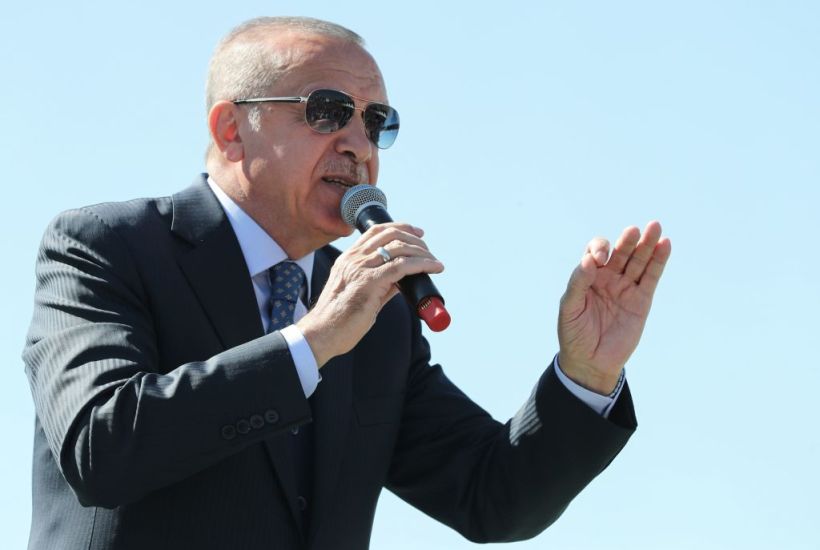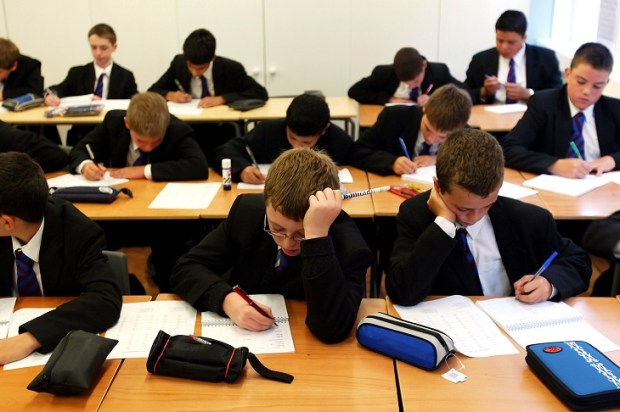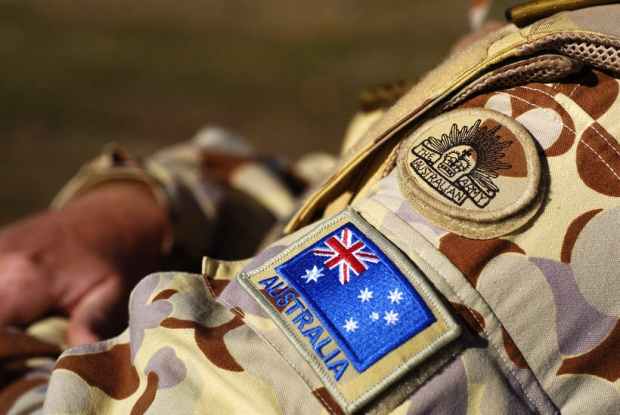The most touching, if not confronting, memorial at Anzac Cove is the sandstone plinth inscribed with words attributed to Kemal Ataturk.
He was the architect of Turkish military victory at Gallipoli in 1915, an ardent if not ruthless nationalist later regarded as the founder of an enlightened modern Turkey, which existed until the rise of the present regime.
He is therefore also the architect of the demise of the Turkish Ottoman Empire, who deposed and exiled the ruling Caliph, a role some wish to see revived and which some particular individuals now covet.
There are certainly wars being waged under multiple Muslim brands which extol that end as their goal.
The original memorial has oft been replicated, most notably at the south-eastern end of Canberra’s Anzac Avenue, the closest of many other memorials which line that thoroughfare to the Australian War Memorial, perhaps this nation’s most significant site.
The words attributed to Ataturk powerfully state:
Those heroes that shed their blood and lost their lives … You are now lying in the soil of a friendly country. Therefore rest in peace. There is no difference between the Johnnies and the Mehmets to us where they lie side by side here in this country of ours … You, the mothers who sent their sons from faraway countries, wipe away your tears; your sons are now lying in our bosom and are in peace. After having lost their lives on this land they have become our sons as well.
During the 1915 campaign, Atatürk and his fellows had no concept of any national difference between the invading soldiers and those of the British army, thus the reference to Johnnies.
However, the memorial stands at what the Turks also now recognise as Anzac Cove, where Anzacs represented the majority of those fighting there, albeit with troops of other British Empire nations, including India and Palestine.
The Turks still wonder why we landed there on April 25 when they proudly claim to have won the Dardanelles campaign on March 18,
They have no doubt they convincingly annihilated the Allied fleet attempting to storm The Narrows between the opposing coastal artillery forts at Çanakkale and Eceabat, with a stunningly re-laid minefield which allied naval planners thought they had neutralised.
They wonder why we commemorate a defeat, but they understand our pride in those who fought there and those who remain for eternity “in their bosom”.
On the eve of April 24, 1951, the 46th anniversary of the original landings, Australian and Turkish troops were serving side by side with the United Nations forces in Korea.
Both national contingents had arranged to have a combined celebration of the occasion, with legend suggesting catering was the responsibility of the Turks because Australia’s 3rd battalion of the Royal Australian Regiment was on operations.
The Turks initial disappointment when the Australians failed to show quickly turned to anger when they discovered their new found Australian mates were fighting for their lives at the Battle of Kapyong.
Their fathers may have fought each other, but the Turks wanted to rush to fight alongside their allies.
Turks have warmly welcomed Australians travelling to Turkey for what we call Anzac Day to mark the occasion together, demonstrating old enmities can be forgiven if not forgotten.
The recent terrorist outrage in Christchurch, New Zealand allegedly by an Australian has seemingly changed all that, at least in the eyes of some.
Turkish President Recep Tayyip Erdoğan, who some believe sees himself as the future Caliph of a revived Ottoman Empire, has sought domestic and perhaps some international political advantage by describing the Christchurch horror as an attack on Turkey itself.
He singled out Australia as the perpetrator.
Australia’s official responses to these threats have been half-hearted at best.
Our nations have a collective investment in Gallipoli, as Ataturk clearly acknowledged.
Turkey has a responsibility to respect the peaceful wishes of the vast majority of Australians.
Turkey, like Australia, is in the midst of an election campaign, with some pundits suggesting the Erdoğan regime may be toppled.
Erdoğan’s agenda has been to situate himself as the devout Muslim who will save Turkey from Atatürk’s secular creation of a moderate, successful Turkey integrated socially and economically in Europe, with a Romanised alphabet and, most significantly, equal opportunities in education and employment for women.
Ataturk cemented Turkey’s place in the modern world.
Erdoğan wants to return Turkey to what he interprets as its fundamentalist Islamic roots.
The Turkish Army and its leadership, Ataturk’s spiritual home and his strongest continuous supporter have been major victims of Erdoğan’s political ambition.
As has the reintroduction of restrictive religious dictates, which Ataturk ruthlessly excised to allow all Turks to dress and behave according to their personal preferences.
Modern Australians bear Turkey no animosity.
The Christchurch attacks were the vile act of a warped individual.
Erdogan’s suggestion that anti-Muslim Australians visiting Turkey to mark Anzac day would be “returned in coffins like their grandfathers” was an unnecessary threat.
A few other irrelevant individuals in Australia have also attempted to push their own, vile racial political agendas, falsely blaming Muslim immigrants for the Christchurch atrocity.
The oft contradictory Ataturk would be appalled.
A century of intervening mutual cooperation and trust between our two nations seems to have been destroyed by a vile act and intemperate political rhetoric.
Ataturk died of cirrhosis on November 10, 1938, aged 57.
His visionary, secular plans for Turkey and its place in the world now under threat, if he were around today he would probably be driven to drink.
Ross Eastgate blogs at Targets Down.
Got something to add? Join the discussion and comment below.
Got something to add? Join the discussion and comment below.
Get 10 issues for just $10
Subscribe to The Spectator Australia today for the next 10 magazine issues, plus full online access, for just $10.


























Comments
Don't miss out
Join the conversation with other Spectator Australia readers. Subscribe to leave a comment.
SUBSCRIBEAlready a subscriber? Log in